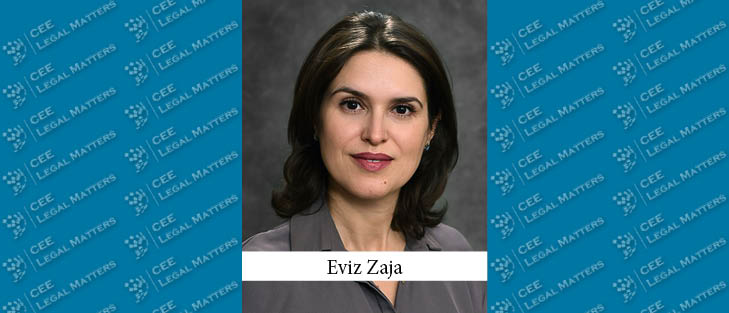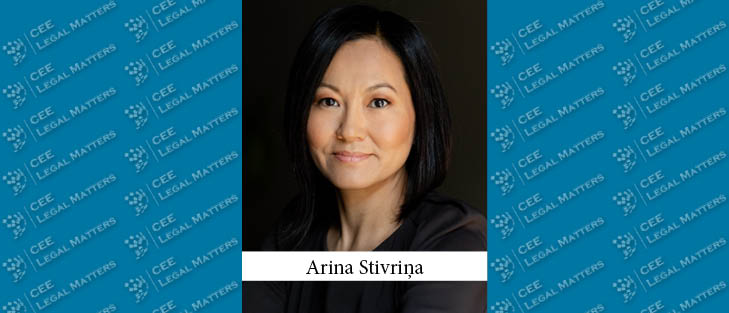The Companies Act of the Republic of Serbia (“Off. Herald of RS”, Nos. 36/2011, 99/2011, 83/2014 - other law, 5/2015, 44/2018, 95/2018, 91/2019 and 109/2021; hereinafter: “the Law”) prescribes a circle of persons who have certain special duties towards the company:
- due diligence (Art. 63),
- duty to report transactions and actions in which there is personal interest (Art. 65),
- duty to avoid conflict of interest (Art. 69),
- duty to keep business secret (Art. 72) and
- duty to abide by ban on competition (Art. 75);
in question are:
(1) general partners;
(2) members of a limited liability company who own a significant share in the company’s share capital or limited liability company member who is the controlling member of the company in terms of Art. 62 of the Law;
(3) shareholders who own a significant share in the company’s share capital or a shareholder who is the controlling shareholder of the company in terms of Art. 62 of the Law;
(4) directors, supervisory board members, representatives and procurators and
(5) liquidator.
Other persons may also be designated as persons with special duties towards the company by means of a memorandum of association, or articles of association (Art. 61 of the Law). However, it is important to keep in mind that special duties towards the company do not necessarily include the same circle of persons. For instance, due diligence obliges directors, supervisory board members, representatives, procurators and liquidator; duty to report transactions and actions in which there is personal interest refers to every person from Art. 61 of the Law; duty to abide by ban on competition concerns every category from Art. 61 of the Law, except for liquidator.
Certainly, special duties towards the company can be breached; in that case, the company, as well as members of the company, upon fulfilment of the prescribed conditions, are guaranteed judicial protection against the person(s) who breached the special duty (consequently causing damage to the company, for instance). This judicial protection is provided according to the specific rules of company law, i.e. through special, company law actions. One of them is derivative action, whose legal scope and applicability in practice is the subject of this text.
I Whose right to derivative action is?
It is important to understand that when a special duty towards the company is breached harmful consequences are caused, in the first place, to the company itself. If the director of the company uses, in his own interest, the company’s business opportunities (thereby breaching the duty to avoid conflicts of interest), the company may file an action due to breach of the duty to avoid conflicts of interest, requesting either compensation of damages or transfer to the company of the gain that person i.e. its affiliated person made as a consequence of such breach of duty. In other words, given that the damage was caused to the company itself, it is to be expected that it is the company that should seek judicial protection of its own rights, in its own name and at its own expense. Considering the essence of the breach at issue and the legal consequences it caused, the most natural right to address the court belongs to the company itself.
Or does it?
Yes, but it is not always the case in practice. Derivative action is a special form of judicial protection of the company’s rights: it is brought by one or more members of the company in their own name, and on behalf of the company, against a person who breached the special duty towards the company. Hence the name of this action (derivative in the sense of derived, the company’s member derives the right to file an action against persons with special duties from the company’s own right). The most important rules that apply to this action are explained below.
II What is derivative action and under which conditions can it be filed?
First of all, it is not fully accurate to say that the right to file a derivative action belongs to the member of the company. This statement needs to be more specific. Primarily, it is to be noted that a company may file an action for breach of due diligence, action due to a breach of rule on approving transactions which involve personal interest, action due to breach of the duty to avoid conflict of interest, action against a person who violates the duty to keep the business secret and action due to breach of rule on ban on competition. Only subsidiary, subject actions can be filed by one or more members of the company in their name, and on behalf of the company only if:
- at the time of filing the action, they own shares or stocks which represent at least 5% of the company’s share capital, regardless of whether the grounds for taking derivative action occurred before or after acquiring the company member status and
- if, before filing derivative action, they requested in writing from the company to file the action on these grounds, and that request was rejected, i.e. this request was not acted upon within a term of 30 days of the day of submitting the request (Art. 79, Para. 1 of the Law).
This provision leads to several very important conclusions.
First, for the filing of derivative action, the law prescribes a capital-census of at least 5% of the company’s share capital, which means that it is a means of protecting minority shareholders and represents a procedural condition for taking the action. On the contrary, when it comes to the action of a company member due to breach of special duties (individual action from Art. 78 of the Law), the condition regarding the capital-census is not prescribed.
Second, as it is irrelevant whether the grounds for taking derivative action occurred before or after acquiring the company member status, it should be noted that possible manipulations regarding the acquisition of the status of a member of the company and “adjustment” of that moment in relation to the possibility of taking the action are not an obstacle to the use of derived right (for instance, someone may become a member of the company precisely because of and after learning that derivative action can be filed), meaning that the legislator does not condition the filing of derivative action in good faith.
Third, derivative action can be filed either by one member or two or more members of the company together (their capital-shares are then added together in order to exceed the threshold prescribed for filing the action). For instance, if one member owns shares that represent 3 percent of the company’s share capital and another own shares that represent 4 percent of the company’s share capital, individually, these members would not be allowed to file the action; however, if they act together, their shares combined fulfil the capital-census condition and derivative action is allowed to be filed.
Fourth, before filing derivative action, shareholder or stockholder (members) must request the company to be the one to seek judicial protection of its rights, and they can file the action only if the company rejects this request, i.e. this request was not acted upon within a term of 30 days of the day of its submission. With this request, the company is “warned” to use the right that primarily belongs to it, and only if it refuses or fails to demand protection of its own rights, the path is opened for its members to file the action and protect the company from the harmful consequences of the breach. For example, it is possible that a controlling shareholder, who breached a certain special duty, is blocking the company from filing a derivative action, which is why the company is not filing the action itself. It is precisely in such situations where derivative action is used as a means of protecting minority shareholders.
Fifth, the fulfilment of the requirement regarding the capital-census is assessed before the moment of filing the action. It is necessary, therefore, that at the time of filing the action, the member of the company owns prescribed percent of the company’s share capital. A possible “drop” below the prescribed threshold or even the loss of the status of a member of the company afterwards will not have a negative impact on the dispute following the action.
Sixth, considering that disputes following derivative action are conducted on behalf of the company, the member will have to cede the compensation of damages and other benefits awarded by the court to the company. This is because the member did not conduct the proceeding on his own behalf, regardless of the fact that it was conducted in his own name.
Seventh, the company member who files derivative action bears the risk of failure in the dispute. This means that, if he fails in the procedure, the costs of the dispute will be borne by him personally, and not by the company, which is a circumstance that can act as a deterrent to members who would eventually file the action, but do not want to expose themselves to the risk of incurring the costs of the procedure, in case of failure in the dispute.
III Additional rules
A company member who acquired a share or stocks in the company from a person who filed a derivative action, may, with that person’s consent, replace him in the dispute following that action until it is finally resolved, as well as in the proceeding following an extraordinary legal remedy (Art. 79, Para. 2 of the Law). In the event that the company exercised its right and filed, at the request of the member, an action for breach of special duty, a member who requested from the company to file that action, may request from the court before which the proceeding is being conducted to intervene in the proceedings on the part of the claimant (Art. 80, Para. 1 of the Law).
Considering the procedural role played by the intervener according to the general rules of litigation, it can be said that the purpose of this provision is to enable a kind of supervision over the way in which the company conducts the proceeding, because it is in the interest of the member that the company conducts the proceeding in the best way possible, i.e. to succeed in the dispute. Similarly, if a company member filed derivative action in accordance with Art. 79, Para. 1 of the Law, another member of the company who meets the conditions from Art. 79, Para. 1, Item 1 of the Law may request from the court before which the proceeding is being conducted to intervene on the part of the claimant (Art. 80, Para. 2 of the Law).
IV What can be demanded with a derivative action?
Derivative action cannot be filed for just any claim. The claim must be aimed at eliminating the harmful consequences caused by the breach of the special duty: for example, termination of the breach; expulsion of the member who breached the special duty as the company member; compensation of damages; transfer of gains to the company. In any event, what will be claimed in a specific case depends on the type of breach in question.
V Applicability of a derivative action beyond breaches of special duties
It is very important to bear in mind that derivative action does not serve exclusively to protect the company from breach of special duties. Namely, derivative action is a means of protection in several other cases, which are not related to special duties.
First, if, at the request of the member who holds a share representing at least 5% of the company’s share capital, the general meeting fails to decide on the request for the filing of the action for expulsion of a company member within two months from the day the request was filed or rejects the request or the action is not filed within 30 days from the day when the decision to file the action has been made, the member who filed the request has the right, within a subsequent time limit of 30 days, to file an action to the court in his name, but on behalf of the company (Art. 196, Para. 6 of the Law). As can be seen, the condition regarding the capital-census is also prescribed for this case, as well as the condition regarding the previous request addressed to the company.
Second, in case of a transfer of shares (or stocks), the transferor and acquirer are jointly and severally liable to the company for obligations of the transferor with regard to the contribution which occurred until the time of that transfer, in keeping with the provisions of the Law for each individual form of a company; the rights of the company are exercised by an action filed to the competent court, which, apart from the company, may also be filed by the company members who own or represent at least 5% of the company’s share capital (Art. 49 of the Law).
Third, if the stockholder received a payment contrary to the provisions of Art. 275, a return of the same amount to the company shall be made, in case they knew or must have known that payment was made contrary to the provisions of this Article, and the company’s claim regarding this return reaches the statute of limitations within five years from the day when the payment was made. However, each stockholder who is meeting the conditions from Art. 79 of the Law may file a derivative action if the company does not claim the subject return, in his own name and for the account of the company.
Fourth, in the event of a breach of the provisions on the disposal of high-value assets, the company and the stockholder who holds or represents at least 5% of the company’s share capital may file an action to annul the legal transaction or legal activity of acquisition, i.e. disposal of high-value assets, provided that he held or represented at least 5% of the company’s share capital on the day of conclusion of that legal transaction, i.e. legal activity (Art. 472, Para. 1 of the Law).
VI Deadline for filing a derivative action and the competent court
Derivative action may be filed within a term of six months of the day the committed breach was found out (subjective deadline), and no later than within a term of five years as of the day of the committed breach (objective deadline). The court competent to decide upon the action is the Commercial Court.
By Marija Vranic, Associate, JPM & Partners














